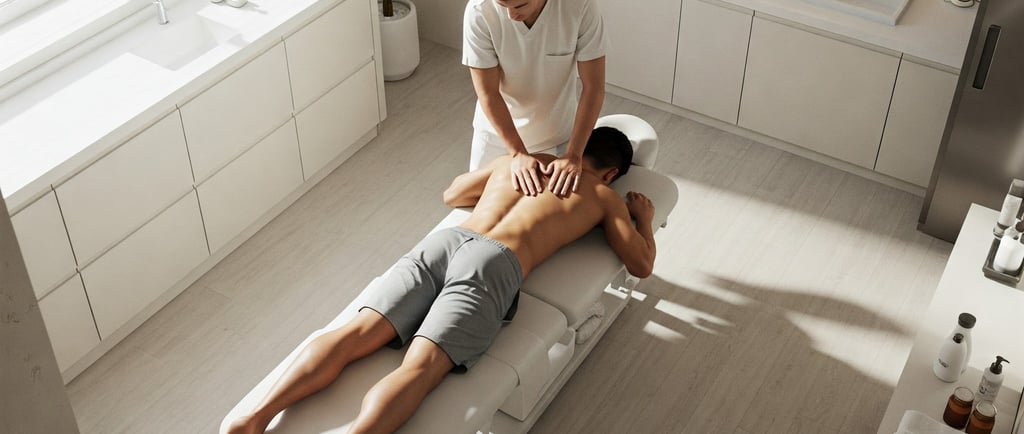Does massage really work?
Massage therapy (MT) is supported by a growing body of research as an effective therapeutic modality for various conditions and symptoms. Systematic reviews, which are considered the gold standard for high-quality evidence in healthcare, synthesise data from multiple studies to provide reliable conclusions about its efficacy, effectiveness, and safety
MASSAGEWELL-BEING
Onur Orkut
9/8/20252 min read


General Effectiveness and Comparison to Other Therapies
What is massage?
Modern massage therapy is not a single technique but a diverse range of approaches sharing common characteristics. The AMTA defines massage as "manual soft tissue manipulation [that] includes holding, causing movement, and/or applying pressure to the body," and massage therapy as "a profession in which the practitioner applies manual techniques, and may apply adjunctive therapies, with the intention of positively affecting the health and well-being of the client." This broad definition allows for considerable variation in practice, including:
Duration of treatment: From 10-minute sessions focused on specific areas to hour-long full-body treatments.
Types of touch and strokes: Varying extensively.
Sites of application: Different body areas targeted.
Apparatus used: Specialised tables or chairs.
Treatment setting: Private clinics, shopping malls, or workplaces.
Explanatory mechanisms and intended outcomes: Therapists and recipients may subscribe to different theories regarding how MT works and pursue diverse benefits, from pain relief to emotional tension reduction.
Despite this diversity, the common element is the "use of interpersonal touch in the form of soft tissue manipulation."
Does massage work?
In short, yes. But more high quality evidence is needed.
A meta-analysis of 37 studies found a statistically significant overall effect of massage therapy (MT).
Some of MT's largest effects are found in psychology, particularly in reducing trait anxiety and depression. MT has been found to be similar in magnitude to those of psychotherapy, a more traditional treatment for these conditions.... This suggests that MT may function in ways that parallel the common-factors model of psychotherapy, where factors like positive expectations and interpersonal contact are crucial.
MT is often recommended as part of a multi-modality treatment approach for various conditions. This means it is part of a bigger picture when it comes to treatments, but it has overall general positive outcomes.
Is massage good for Low Back Pain?
Recent reviews indicate that massage only improved pain outcomes in acute, sub-acute, and chronic LBP in the short-term. Long term effects have not been established. So if you are looking for long term relief, you may want to consider other alternatives - such as physiotherapy or exercise. But massage can help with short term relief.
Is massage good for post-exercise aches? (Delayed Onset Muscle Soreness)
There is moderate evidence for MT in managing DOMS. Shorter massage sessions (5-12 minutes) may have larger effects than longer ones for performance recovery.
Is massage good for Anxiety, Stress, and Relaxation?
Anxiety reduction is one of the most well-established effects of MT, crossing multiple conditions and populations.
Single applications of MT reduced state anxiety. The average participant receiving MT experienced a greater reduction in state anxiety than over 64% of participants in comparison treatments. Multiple applications of MT provided the largest effects on trait anxiety. The average MT participant experienced a reduction in trait anxiety greater than 77% of comparison group participants, similar in magnitude to psychotherapy. MT is effective in modulating the physiological stress response, as reflected in reductions in heart rate and blood pressure.
In short, massage is good for us in more ways than one. However, it is not a long term solution for chronic issues. It is not a replacement for more traditional approaches to treatment either. But it can complement more established methods.
In a hurry?
Massage is good for you, especially psychologically.
It has benefits in reducing physical pain too, but not immediately.
It works better in acute pain rather than chronic pain. So, don't wait to book a massage until that pain becomes chronic.
The benefits are more pronounced if you receive massage more than "just once". Regular treatments are better.
